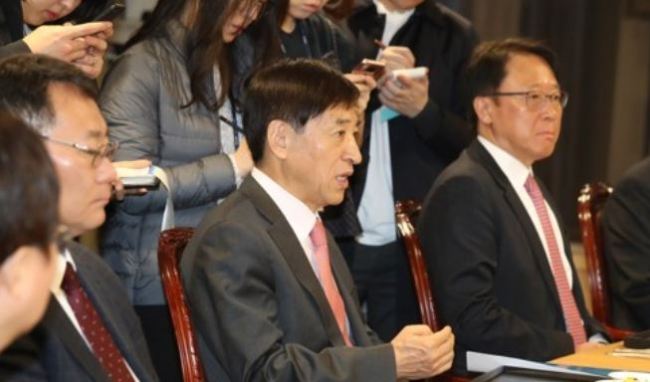South Korea's central bank chief said Thursday that Asia's fourth-largest economy is expected to pull off growth close to its potential economic growth rate based on favorable global trade conditions.
"Despite many difficulties, the South Korean economy achieved 3 percent growth this year," Bank of Korea Gov. Lee Ju-yeol said at a meeting with economic experts and advisers. "For next year, the economy will expand at its potential growth rate if there are no unpredictable developments like those centered on North Korea. We will also reach closer to target inflation numbers."
But he pointed out some protracting risks, including widening trade protectionism and monetary normalization in the United States that may weigh down the economy next year, as well as issues like South Korea's low birthrate and household debt.
Last month, the BOK raised the key rate by a quarter percentage point to 1.5 percent for the first time in 6 1/2 years, citing favorable economic conditions and low inflation pressure.
The South Korean economy grew 1.5 percent in the third quarter of this year from a quarter earlier thanks to brisk overseas sales, raising hopes that the economy will easily meet the target growth of 3 percent for 2017.
 |
Bank of Korea Gov. Lee Ju-yeol speaks at a meeting with economic experts and advisers in Seoul on Dec. 21, 2017. (Yonhap) |




![[Exclusive] Hyundai Mobis eyes closer ties with BYD](http://res.heraldm.com/phpwas/restmb_idxmake.php?idx=644&simg=/content/image/2024/11/25/20241125050044_0.jpg)
![[Herald Review] 'Gangnam B-Side' combines social realism with masterful suspense, performance](http://res.heraldm.com/phpwas/restmb_idxmake.php?idx=644&simg=/content/image/2024/11/25/20241125050072_0.jpg)

